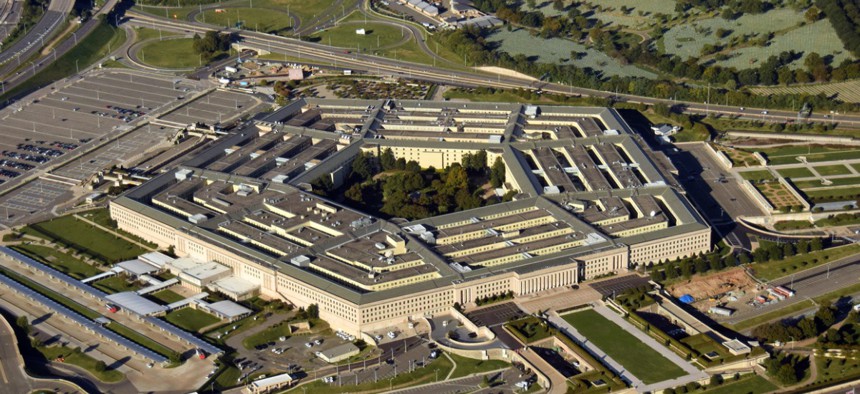Court to Explore Whether Trump Administration Interfered in JEDI Cloud Contract

Ivan Cholakov/iStock.com
The Defense Department previously said lengthy litigation could bring the contract’s future into question.
A federal judge Wednesday denied motions to dismiss allegations made by Amazon Web Services in November that the Trump administration politically interfered in the Defense Department’s Joint Enterprise Defense Infrastructure cloud contract award.
The ruling, issued under seal, likely extends the legal challenge made by AWS after DOD awarded Microsoft its JEDI contract in September.
Judge Patricia Campbell-Smith’s decision opens the door for the court to further explore AWS’ allegations that political interference played a role in the Pentagon’s decision to select Microsoft—allegations Pentagon officials have repeatedly denied. However, the decision could threaten the JEDI contract itself. In a January memo, the Defense Department hinted it could abandon the JEDI cloud effort if the judge did not dismiss the political influence allegations because of the time needed to take statements from current and former White House and department officials.
“The prospect of such a lengthy litigation process might bring the future of the JEDI Cloud procurement into question,” the memo stated.
The department originally selected Microsoft for the JEDI contract in October 2019, but work halted when AWS challenged certain evaluation criteria. DOD awarded JEDI to Microsoft a second time in September. The contract has been under a temporary restraining order since.
The contract was conceived to stand up an enterprise cloud for the department and is worth up to $10 billion over the next decade if all options are exercised. DOD first issued a request for information in 2017, but the procurement hit delay after delay, including internal department reviews, lawmaker inquiries, bid protests and legal challenges. Throughout the procurement, DOD officials have said the department has an urgent, unmet need for enterprise cloud computing.
The judge has not yet rendered a decision over three other AWS complaints, including allegations of technical evaluation errors made by Defense Department officials.
“The record of improper influence by former President Trump is disturbing, and we are pleased the Court will review the remarkable impact it had on the JEDI contract award,” an AWS spokesperson told Nextgov. “AWS continues to be the superior technical choice, the less expensive choice, and would provide the best value to the DoD and the American taxpayer. We continue to look forward to the Court’s review of the many material flaws in the DoD’s evaluation, and we remain absolutely committed to ensuring that the Department has access to the best technology at the best price.”
In a statement, Microsoft’s corporate vice president of communications Frank Shaw told Nextgov “this procedural ruling changes little.”
“Not once, but twice, professional procurement staff at the DoD chose Microsoft after a thorough review. Many other large and sophisticated customers make the same choice every week,” Shaw said. “We’ve continued for more than a year to do the internal work necessary to move forward on JEDI quickly, and we continue to work with DoD, as we have for more than 40 years, on mission critical initiatives like supporting its rapid shift to remote work and the Army’s IVAS.”
DOD declined to comment beyond previous remarks made by the department's chief information officer earlier this year. In January, acting DOD CIO John Sherman told Nextgov in an email: "We remain fully committed to meeting this requirement—we hope through JEDI—but this requirement transcends any one procurement, and we will be prepared to ensure it is met one way or another."
Mila Jasper contributed to this report.
NEXT STORY: Court will hear case against Trump on JEDI






